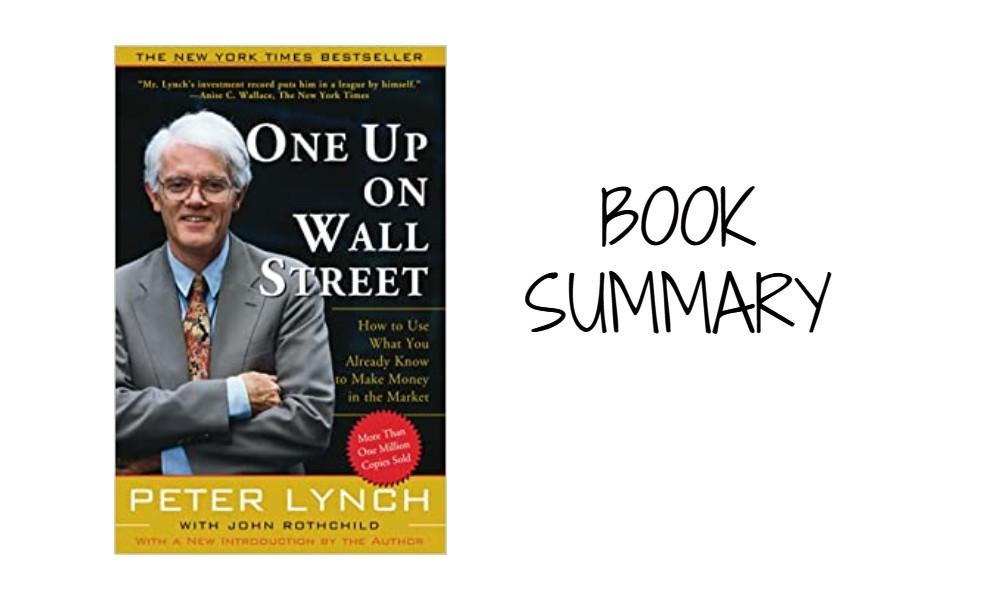
"One Up On Wall Street: How To Use What You Already Know To Make Money In The Market" is a book written by Peter Lynch, a well-known American investor, and mutual fund manager. In the book, Lynch shares his investment strategies and insights on how ordinary individuals can achieve success in the stock market.
One of the main themes of the book is the idea that ordinary individuals have an advantage over professional investors because they have knowledge and expertise in areas that the professionals may not be familiar with. Lynch argues that by using this "edge" and focusing on companies that they understand and have knowledge about, ordinary investors can make informed and successful investments.
Lynch also emphasizes the importance of researching and thoroughly understanding a company before investing in it. He advises readers to look for companies with strong financials, a clear business plan, and good management.
Other key themes of the book include the importance of diversification in investing, the dangers of following the crowd and making investment decisions based on short-term market trends, and the value of patience in investing.
Overall, "One Up On Wall Street" is a practical and informative guide for individuals looking to make informed and successful investments in the stock market. It offers valuable insights and strategies from one of the most successful investors of all time.
Here are my top twenty-five takeaways from "One Up On Wall Street: How To Use What You Already Know To Make Money In The Market" by Peter Lynch:
I am a big fan of Peter Lynch. His lectures & books have inspired millions of investors.
Practical and actionable advice: Lynch's writing is known for being practical and actionable, providing readers with specific strategies and tips that they can use to make informed investment decisions.
Emphasis on research and understanding: Lynch emphasizes the importance of thoroughly researching and understanding a company before investing in it, which can help investors make more informed decisions.
Focus on long-term success: Lynch advises investors to consider the long-term potential of an investment, rather than focusing solely on short-term gains. This long-term perspective can be valuable for building wealth over time.
Insights from a successful investor: Lynch is a well-known and highly successful investor, and his insights and strategies are based on his own experiences and successes in the market.
Accessibility to a wide audience: Lynch's writing is known for being approachable and accessible, making it appealing to a wide audience, including both novice and experienced investors.

My goal is simple, protect what is important to you. I focus my energy on discovering your exposure to risk and building a comprehensive plan to protect you against those risk.